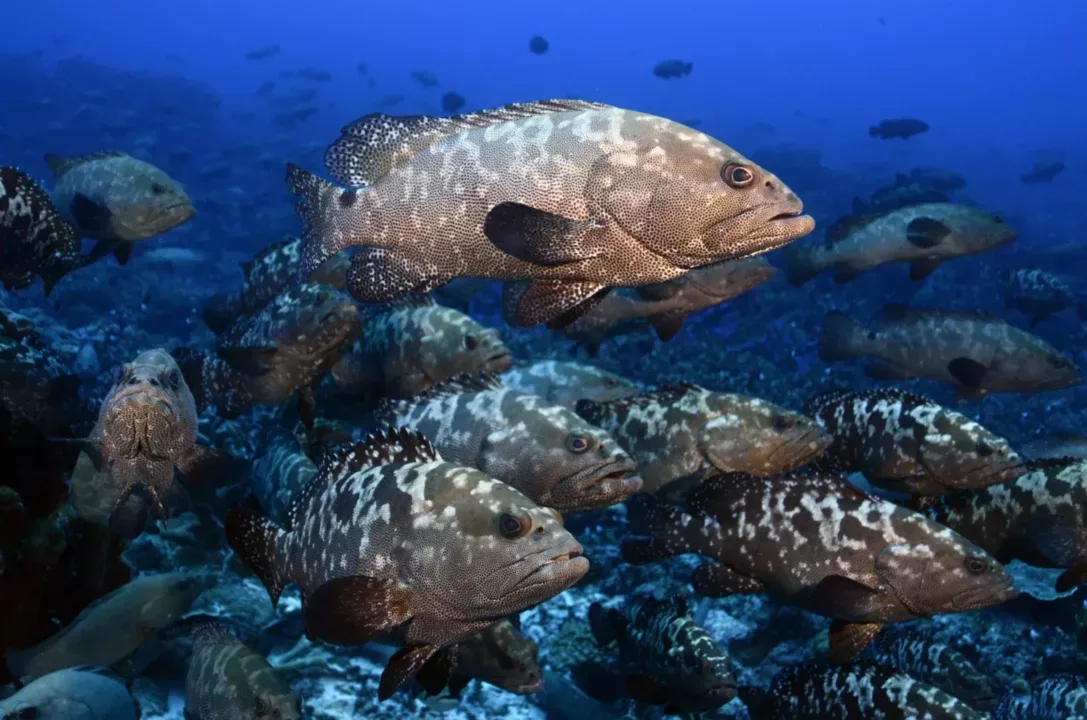Suva, Fiji – The Ministry of Fisheries teamed up with leading researchers to help fishers and fish sellers earn more money from grouper (kawakawa) and coral trout (donu) species once the fisheries begin to recover following the recent grouper seasonal protection.
“We are already taking the steps to build the stocks up, but with this new study we also want to ensure all stakeholders, especially Fiji’s fishers, can receive the highest economic value and benefits from these A-grade fish,” says Mr. Aisake Batibasaga, the Director for the Ministry of Fisheries. “We fully expect Fiji’s efforts to manage its grouper fisheries to become a model for the region.”
The Ministry of Fisheries this year banned the fishing, sale and export of groupers during the peak breeding months, June to September, to ensure that the dwindling stocks have more opportunities to breed and recover after their declines. As the stocks recover, the Ministry wants to take additional steps to ensure fishers can receive more income from each fish.
Some of the study’s recommended actions include making pricing from fishers to middlemen, to markets (both domestic and international) and restaurants publicly available so fishers can negotiate better.
Forming fisher groups that can negotiate together can also help fishermen gain more power over pricing and facilitate direct marketing. Training in fish handling best practices can help fetch higher prices for all stakeholders because this improves fish quality, such as freshness, along the trade chain.
The study found that the majority of fishers believe the grouper populations are declining in Fiji, naming increasing fishing and overfishing as the most common reasons.
“This study is especially timely given we know that demand for grouper is high and even growing, but we also know that 80 percent of their breeding sites are rapidly declining or are already wiped out,” said the Fisheries Director.
The study, called the Value Chain Analysis of the Fiji Grouper Fishery Report, was conducted by the Ministry of Fisheries in partnership scientists from SCRFA (Science and Conservation of Fish Aggregations), Wildlife Conservation Society, and the University of British Columbia (Canada).
Through interviews with over 70 fishers, the report estimated that the annual grouper catch volume could be as much as 845,000 kilograms with an additional 245,000 bundles of grouper of unknown weight. That is far more than official data suggest and underscores how important these fish are to the food security and livelihoods of Fijians as well as the need for management and monitoring actions.
The exporters interviewed reported their trade to be approximately 70,000 kilograms of grouper each year, mainly sold to New Zealand, the United States, China (including Hong Kong) and South Korea. According to the report, this amount is almost twice the officially reported national catch in 2014 through 2016, which again shows the need to improve monitoring of the trade.
Given the current declines in the grouper fisheries of Fiji, the report recommends giving priority to national food security and refraining from export of grouper unless domestic sales can be supported by a sustainably managed fishery.
It is also important to keep prices within the range of domestic consumers who wish to keep eating their favourite groupers. If exports can be sustainably managed alongside domestic trade, the report recommends much improved monitoring of exports, by value and species, as well as an export tariff to ensure greater economic benefits locally.
“While the Government has introduced a seasonal ban to safeguard the future of Fiji’s grouper species, this study offers additional measures that can aid recovery but also ensure that Fijians get the maximum benefit from these culturally and economically valuable fish,” Dr. Yvonne Sadovy, a lead researcher on the study and a global expert on grouper fisheries. “We hope that this study will help the Ministry to determine the best approaches to take.”
Research for the study was conducted in Fiji over a period of eight months using a number of methods including socioeconomic survey questionnaires with fishers, middlemen, hotels, restaurants and exporters as well as literature reviews.

